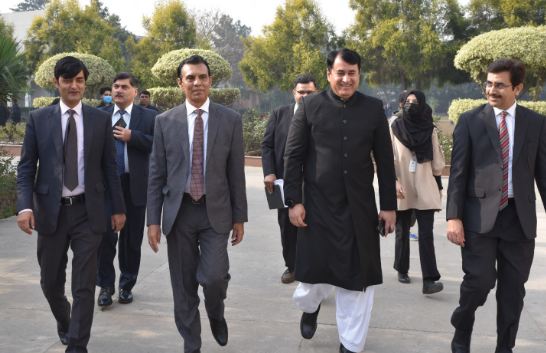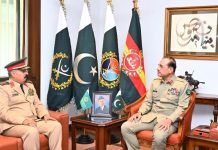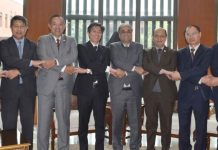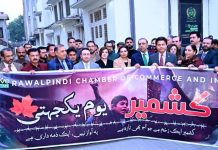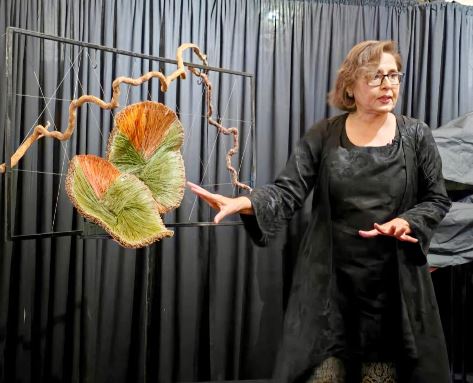ISLAMABAD, DEC 2 /DNA/ – The Faculty of Social Sciences at the National University of Modern Languages, in collaboration with the Higher Education Commission under the National Research Program for Universities (NRPU), inaugurated a two-day international conference titled “Prioritizing Economic Agenda in Pakistan’s Foreign Policy Towards the United States, China, and the European Union.”
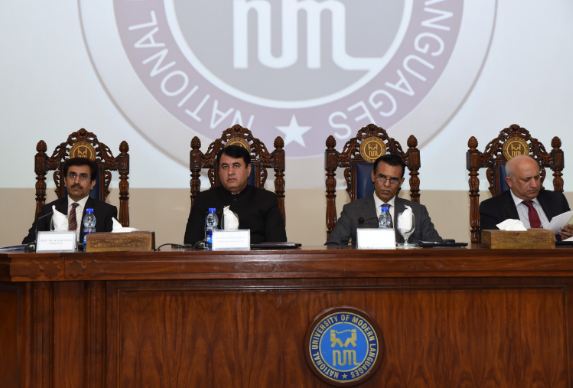
The conference brought together policymakers, academicians, and thought leaders to address the critical role of economic diplomacy in reshaping Pakistan’s foreign policy priorities.
Dr. Abid Qaiyum Suleri, Executive Director of the Sustainable Development Policy Institute, graced the occasion as the Chief Guest. Mr. Haroon Sharif, Former Minister of State and Chairman of Pakistan’s Board of Investment, delivered the keynote address.
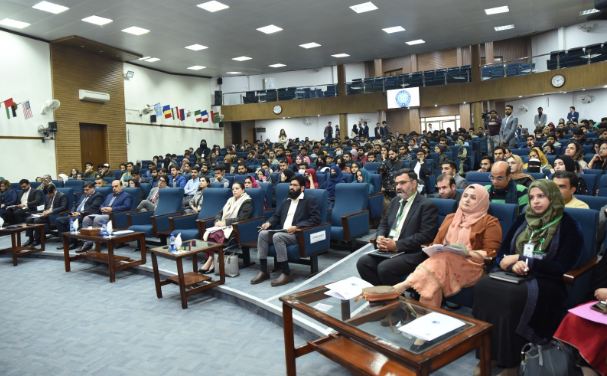
In the Inaugural session, welcoming remarks were delivered by Brig. Shahzad Munir, DG NUML, emphasized Pakistan’s transformative potential, stating, “Pakistan is at a defining moment in its history. By setting clear priorities and implementing sound economic policies, we can unlock a brighter future,” he said.
Prof. Dr. Muhammad Riaz Shad, Dean of the Faculty of Social Sciences and Jean Monnet Chair, outlined the conference objectives, highlighting the challenges and opportunities for Pakistan in the global economic landscape.
Mr. Haroon Sharif underscored the importance of redefining economic diplomacy. He called for a pragmatic approach to trade and investment, stating, “Selling geo-location and cheap labour is no longer viable. Pakistan must focus on value addition, creating competitive exports, and leveraging its human capital.”
He identified key challenges and fault lines, including low productivity, no trend of value addition to the products, lack of export competitiveness, and insufficient job creation. He urged policymakers to adopt a proactive stance, bringing concrete deals to the table, modernizing infrastructure and making ports independent to boost regional connectivity.
The Chief Guest, Dr. Abid Qaiyum Suleri emphasized the need for preparedness in economic diplomacy, particularly in understanding the nuances of global powers and their priorities. He highlighted upcoming challenges, such as the European Union’s 2026 carbon tax policy, and stressed the importance of aligning Pakistan’s supply chains with global environmental standards.
Dr. Suleri also recommended engaging with the United States on debt sustainability and focusing on the evolving dynamics of geo-economic diplomacy, especially in light of potential shifts in global leadership. He also remarked that Pakistan must also understand the red lines of the US, China and EU before setting an economic agenda in its Foreign Policy.
The first session of the conference focused on “Prioritizing Economic Agenda in Pakistan-US Relations.” Experts discussed challenges, opportunities, and policy lessons to strengthen economic ties. Dr Saira Aquil from QAU, Dr Noor Fatima from IIUI, Dr Ahmed Ijaz Malik from QAU, and Dr Usman W. Chohan from the Center for Aerospace & Security Studies were among the distinguished speakers.
The second session, titled “Prioritizing Economic Agenda in Pakistan-China Relations,” featured insightful discussions on challenges and opportunities within the context of the China-Pakistan Economic Corridor (CPEC). Speakers included Dr Khalid Waleed (SDPI), Muhammad Ali Kemal (Ministry of Planning), Dr Mahmood Khalid (PIDE), Dr Muhammad Fahim Khan (Bahria University), and Dr Hassan Daud Butt (former CEO KP-BOIT).
The first day of the conference concluded with an engaging Q&A session, providing participants an opportunity to delve deeper into the critical issues discussed.
The conference will continue tomorrow with more expert discussions on Pakistan’s economic agenda concerning the European Union and strategies for integrating global economic trends into national policymaking.
